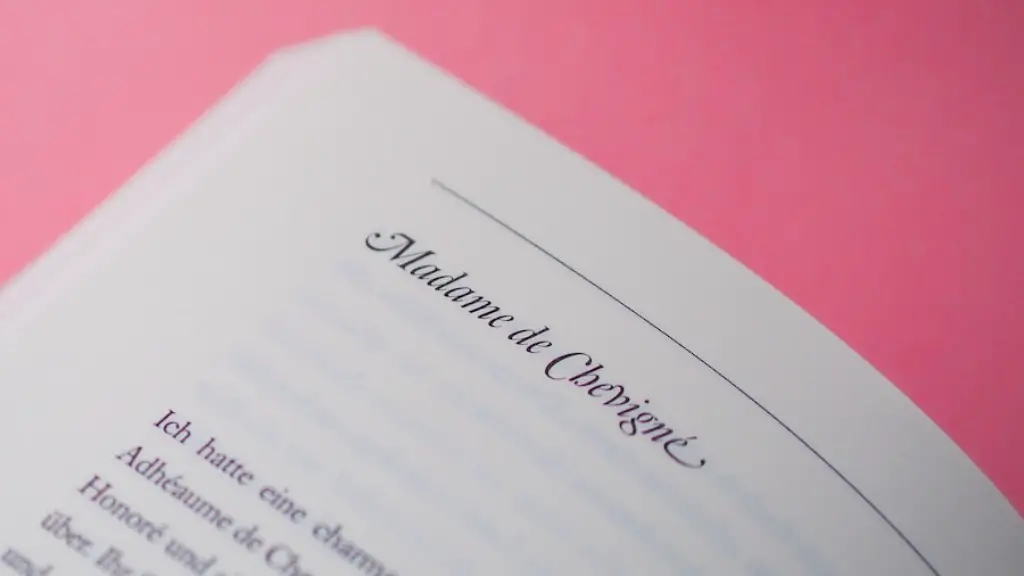Oscar Wilde’s De Profundis holds a unique position in English literature. Written in an epistolary form, it is composed of long, sinuous sentences of arabesque beauty and intricate elaboration, full of Wilde’s ironic wit and baroquely tragic and subtly seductive implications. The letter was written to Lord Alfred Douglas, the key figure in Wilde’s downfall, who was the recipient of its single-minded attack and rebuke.The letter, regarded as one of Wilde’s greatest works, is a reflection of the examination of his troubled inner life – of pain, shame and redemption – as he faced the end of his life in a prison cell.
Throughout De Profundis, Wilde rivets his passionate gaze onto the baleful legacy of culture, lust and unrequited love between him and his former lover, Lord Alfred Douglas, who Wilde believed had betrayed him repeatedly. Wilde goes through his life in meticulous detail, dissecting the immeasurable hurt and pain that he had endured as a result of their tumultuous, ultimately destructive affair. His language is lurid, mournful, and full of a hung-over courage, candidly assessing his faults and recklessness as well as those of his former lover.
Wilde’s realization of his destructive ambition, and of his covetous yearning for a bliss that was unattainable, was dawning slowly upon his agonizing conscience. In De Profundis, Wilde’s prose is heavy with self-realization, full of introspection and an urgent search for that which had been lost: a great life, love, and freedom. He reflects on his own deliciously sinuous irony and how it placed him in an ironic and somewhat ridiculous position.
Wilde’s greatest achievement in De Profundis, however, is the way he manages to express his profound sadness at losing his great life and freedom, yet still preserves a fraction of hope and pride in his own spirit. His entwined emotions of sorrow and regret, yet also the flight of a rueful, heroic spirit, make his work a testament to the power of rhetoric, which Wilde had perfected with his characteristic eloquence.
The language Wilde employs in De Profundis is as diverse as it is strong. He combines the whispers of pain and sorrow with a biting, fierce criticism of his former lover, as well as a sharp-witted insight into his own behavior, which he acknowledges as the main cause of his own downfall. The overall result is poetic, tragic and immensely moving. Wilde’s his use of grandiose language, philosophical musings and searing wit, conjure vivid phantoms of a world of glamour and decadence which equally fascinates and repels readers.
Wilde’s philosophy and attitude, which he conveys so effectively in De Profundis, make us appreciate his courage and his insatiable need to live a truly beautiful life. His semi-autobiographical account of his miseries and musings on the nature of his downfall, lends an incredibly sorrowful tinge to the letter, yet simultaneously, Wilde’s words continue to entail a trace of resolute hope and a potent faith in the human spirit.
Examining Wilde’s Relationship with Lord Alfred
There is a cruel, impossible tenderness in Wilde’s attitude towards Lord Alfred Douglas, the subject of his letter in De Profundis. Wilde writes of his former lover with a deathly passion and intimately probes the personal sorrows brought on by their destructive relationship. In a sad, bittersweet way, Wilde manages to combine vicious criticism with longing, and it almost seems as if he was still trying, in his own peculiar way, to understand how to find forgiveness. He expresses his anguish in a Shakespearean manner and reveals himself as a person constantly caught between contrasting and opposing forces.
Wilde suffered greatly from his overpowering attraction to Douglas, refusing to admit to himself the risks and real dangers posed by such a relationship. This duel with himself and his stubborn refusal to accept his passion for Douglas is where his explorations in De Profundis truly acquire emotional and saintly dimensions. Wilde’s implicit perception of himself as a victim of fate is brilliantly expressed in his rueful words, and throughout his letters shows that despite all his legal and social failures, his spirit remained strong and faithful.
By the time Wilde wrote De Profundis, his last words to his beloved were full of sad regret. He talks at length of his old transgressions but it is only in his last words to Douglas, full of despair and desperation, that we can understand the heavy burden of self-inflicted sorrow that was on Wilde’s heart. He professed his guilt and interior suffering in De Profundis as a form of last testament: his last words to Douglas were words written in his own blood.
A small part of Wilde’s greatness lies in his recognition of his own vices, and his acceptance of his failings. Through De Profundis, he was the first to recognize the damaging influence of his passionate nature, implicitly admitting that he was ultimately the one to blame for his misfortune and misery. In a sense, Wilde’s ultimate aim was to make amends for his mistakes, and De Profundis was his source of alchemy, the very font in which he purified his soul.
Wilde’s Literary Legacy
The story of Oscar Wilde and his excesses and masterpieces, culminates in De Profundis, written in despair and loneliness, yet, in terms of language, as aesthetic as any of his best writings. By examining Wilde’s tempestuous relations with Douglas, De Profundis demonstrates the consequences of failed ambition, of a realization too late, of unrequited love, of an end of a way of living that had sustained and electrified the Victorian era. Consequently, De Profundis unites Wilde’s obsession for high culture and luxurious living and his penetrating insights into the role of art and beauty in life.
De Profundis is Wilde’s swansong to the world, not a calamitous farewell, but an aesthetically ambitious fulfilment of his romantic ambition and a perusal of his life as a comment on society. Through its beauty and eloquence, De Profundis is a testament to Wilde’s greatness, a testament of his writing, still relevant today and expressed perfectly in his surrealistic yet haunting words.
De Profundis garnered an immense public interest, with its immense poetic beauty, moral reflections and its restraint under the maximum of suffering. Wilde’s letter is a timeless masterpiece, still relevant today, resonating with the themes of loneliness, ambition and broken hearts. His words, full of despair and pathos, have left an indelible mark on the English language, often quoted for its beauty and implications.
Written from prison, De Profundis enjoys a special status in Wilde’s work as well as in English literature in general. The amorphous beauty of Wilde’s style, the tenderness and intimate friendship of his address to Douglas, the regret and sadness of his language, the complex criticisms of his beloved paradoxically make the letter one of his most successful works, the one closest to his own heart, and the one that best represents his remarkable talent and inspirational personality.
Comparisons with Wilde’s Other Works
De Profundis can be compared to Wilde’s other writings. His style is recognizable through his characteristic irony, mocking wit and impassioned linguistic complexity. Although, in comparison to his other works, De Profundis is far more personal and introspective, fewer humorous passages appear and the tone of his language is more austere and Shakespearean.
Other Wilde works share many of the same themes as De Profundis, for example The Picture of Dorian Grey, his preeminent literary success, also shows a strong exploration of morality and its consequences, yet, simultaneously, its light-hearted, comedic content ensure that it is Wilde’s major work in terms of commercial success.
In the end, the public’s re-discovery of Wilde’s work, particularly De Profundis,can be seen as a recognition of his greatness as a writer, of his great life, of his love and anguish, his suffering, his humour, as well as his fascinating personality. All of these elements combine to make De Profundis one of his most poignant and powerful works and it serves as a wonderful testament to the depth and breadth of Wilde’s brilliance.
The Impact of De Profundis
The rediscovery of De Profundis has had a great effect on readers since its posthumous publication. Its influence can be seen in the works of other authors, filmmakers, musicians and even visual artists. Its themes of self-acceptance and redemption have been interpreted in numerous ways, and have inspired generations of readers to share in Wilde’s search for an understanding of life and the human condition.
The relevance of De Profundis to the present day is clear. Although Wilde wrote the letter in a period of great personal despair, the ideas he conveys possess a great emotional power, which still speaks to us today. Even Wilde wrote “Every great man nowadays has his disciples, and it is usually Judas who writes the biography”.
It soon became clear that Wilde’s philosophy was being replicated in the work of other writers, and that his fame persevered through the critique of his peers. Authors such as Graham Greene, James Joyce and W.H. Auden have all been heavily influenced by Wilde’s works, particularly De Profundis, which contains some of the most complex and beautiful passages in English literature.
Through De Profundis, Wilde wasn’t just vindicating himself; he was also investing himself in a timeless aesthetic realm, in which he found a haven for his ideas and visions. De Profundis truly is one of the most touching and powerful letters ever written and it is a lasting testament to Wilde’s talents as a writer, thinker and philosopher.
The Relevance of De Profundis
De Profundis remains one of the most widely read and quoted works by Oscar Wilde, and its relevance is evident to this day.The power of Wilde’s writing and the complex characters he created in De Profundis enable readers to engross themselves in his reflections and emotions, and it is this empathy which makes it an internationally acclaimed, timeless classic.
De Profundis is significant due to its extremely personal and honest account of Wilde’s life, emotions and ideas. He candidly confesses his gratitude to those who have helped him, even in the midst of his crippling agony and suffering, and reveals himself as a far from victimised saint, but as a complex and brilliant individual.
The effect that Wilde’s words still have on readers today, is proof of the enduring power of his writing; and the complexity of his ideas and the emotions that he evokes have made De Profundis an internationally renowned letter of beauty and tragedy. Though Wilde wrote it in a period of great anguish and loneliness, his beautiful musings on life and the depth of his soul-searching, prove that De Profundis is one of his greatest works.





